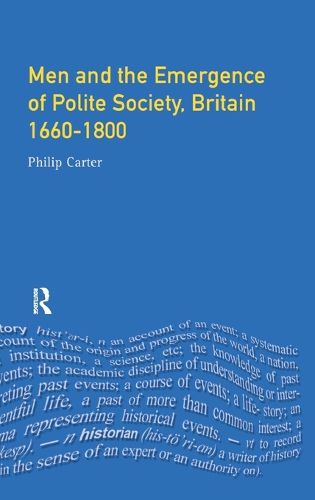Readings Newsletter
Become a Readings Member to make your shopping experience even easier.
Sign in or sign up for free!
You’re not far away from qualifying for FREE standard shipping within Australia
You’ve qualified for FREE standard shipping within Australia
The cart is loading…






This book presents an account of masculinity in eighteenth century Britain. In particular it is concerned with the impact of an emergent polite society on notions of manliness and the gentleman.
From the 1660s a new type of social behaviour, politeness, was promoted by diverse writers. Based on continental ideas of refinement, it stressed the merits of genuine and generous sociability as befitted a progressive and tolerant nation. Early eighteenth century writers encouraged men to acquire the characteristics of politeness by becoming urbane town gentlemen. Later commentators promoted an alternative culture of sensibility typified by the man of feeling. Central to both was the need to spend more time with women, now seen as key agents of refinement. The relationship demanded a reworking of what it meant to be manly.
Being manly and polite was a difficult balancing act. Refined manliness presented new problems for eighteenth century men. What was the relationship between politeness and duplicity? Were feminine actions such as tears and physical delicacy acceptable or not? Critics believed polite society led to effeminacy, not manliness, and condemned this failure of male identity with reference to the fop.
This book reveals the significance of social over sexual conduct for eighteenth century definitions of masculinity. It shows how features traditionally associated with nineteenth century models were well established in the earlier figure of the polite town-dweller or sentimental man of feeling.
Using personal stories and diverse public statements drawn from conduct books, magazines, sermons and novels, this is a vivid account of the changing status of men and masculinity as Britain moved into the modern period.
$9.00 standard shipping within Australia
FREE standard shipping within Australia for orders over $100.00
Express & International shipping calculated at checkout
This book presents an account of masculinity in eighteenth century Britain. In particular it is concerned with the impact of an emergent polite society on notions of manliness and the gentleman.
From the 1660s a new type of social behaviour, politeness, was promoted by diverse writers. Based on continental ideas of refinement, it stressed the merits of genuine and generous sociability as befitted a progressive and tolerant nation. Early eighteenth century writers encouraged men to acquire the characteristics of politeness by becoming urbane town gentlemen. Later commentators promoted an alternative culture of sensibility typified by the man of feeling. Central to both was the need to spend more time with women, now seen as key agents of refinement. The relationship demanded a reworking of what it meant to be manly.
Being manly and polite was a difficult balancing act. Refined manliness presented new problems for eighteenth century men. What was the relationship between politeness and duplicity? Were feminine actions such as tears and physical delicacy acceptable or not? Critics believed polite society led to effeminacy, not manliness, and condemned this failure of male identity with reference to the fop.
This book reveals the significance of social over sexual conduct for eighteenth century definitions of masculinity. It shows how features traditionally associated with nineteenth century models were well established in the earlier figure of the polite town-dweller or sentimental man of feeling.
Using personal stories and diverse public statements drawn from conduct books, magazines, sermons and novels, this is a vivid account of the changing status of men and masculinity as Britain moved into the modern period.